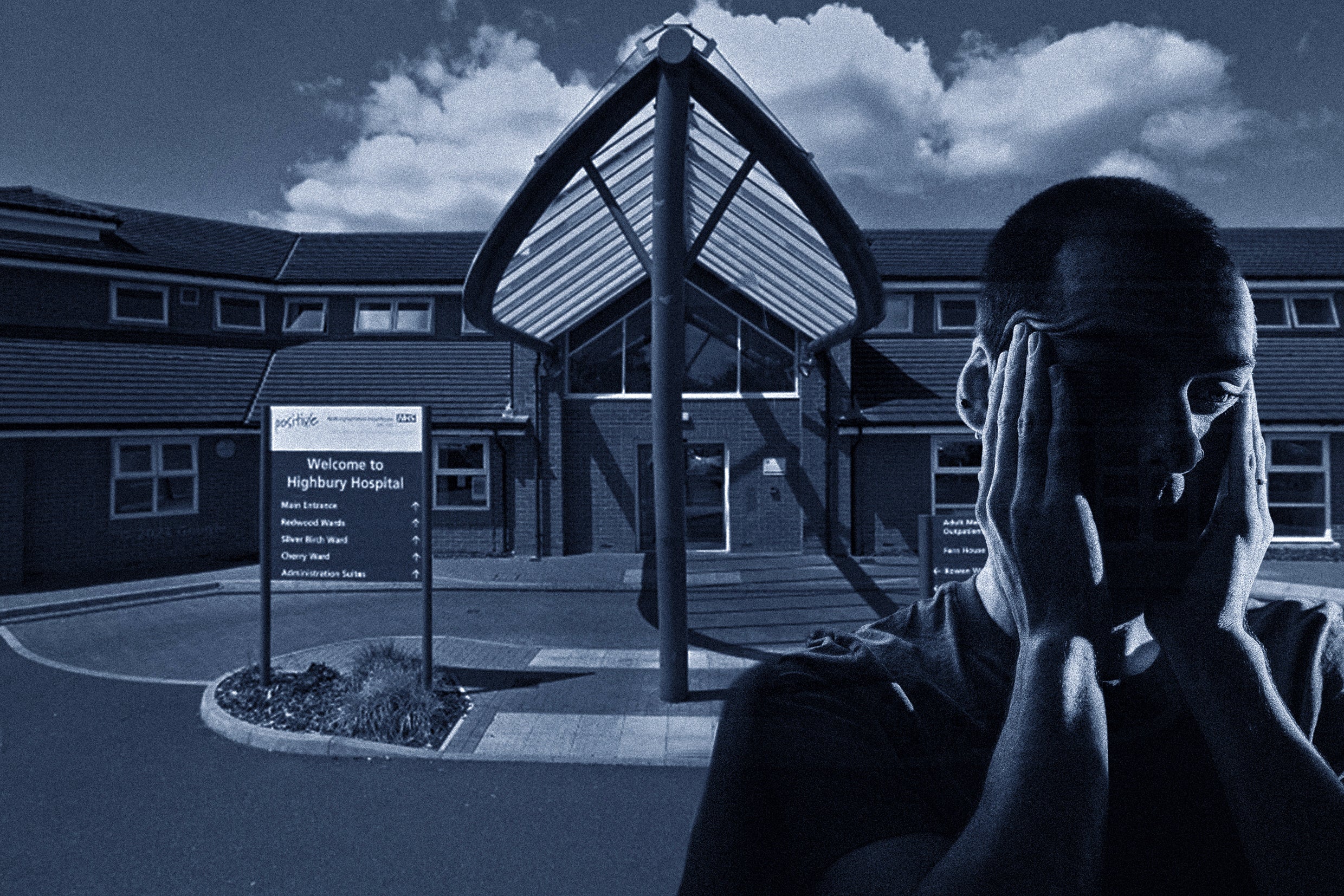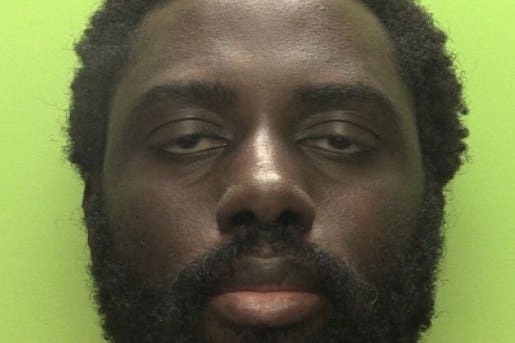Hospital caring for Nottingham triple killer left patients worse than when they went in, damning report finds
NHS’ safety watchdog exposes failings in care across multiple services run by scandal-hit Nottinghamshire Healthcare Foundation Trust

Patients at the hospital that treated killer Valdo Calocane were discharged too soon and released in a worse state into the community, the NHS safety watchdog has found.
Serious failings by Nottinghamshire Hospital Foundation Trust in keeping patients and the public safe have been identified in a review from the Care Quality Commission.
More than 1,200 patients are waiting to be seen by community services, the report found. Meanwhile, several hundred who are receiving treatment did not have a clinician overseeing their care,the CQC found.
The review was launched by the government following the conviction of killer Valdo Calocane, who was under the care of the NHS trust’s community services.
The CQC review said patients reported that crisis services are either “useless” or detrimental to their health.
In February, The Independent revealed more than 30 staff at Highbury Hospital had been suspended by Nottinghamshire Healthcare over allegations of poor care and the falsification of patient records. According to the CQC’s report, 22 of the staff at the trust were suspended following inquests into the deaths of two patients.
In its review, which also covered inpatient services, the CQC warned of reports from staff that its services have a “toxic” and “bullying” culture.
The three broad areas of concern, highlighted in the CQC’s report, were:
- High demand for services was leading to long waiting times for care and a lack of oversight of those waiting
- The trust does not have enough staff to keep patients safe in the community and within some hospital services
- Senior leaders at the trust do not have clear oversight of the risks and issues within the service
In a specific report on Rampton Hospital, a high-security unit, the CQC said it had been raising concerns about the hospital for five years and recommended multiple actions including that the government only license it to open for 12 months before reviewing again.
Calocane, 32, killed 19-year-old students Barnaby Webber and Grace O’Malley-Kumar before killing school caretaker Ian Coates, 65, last June. He was handed a hospital order for manslaughter by diminished responsibility after a court heard he had been diagnosed with paranoid schizophrenia.
He was under the care of the trust’s community service team at the time and had been discharged from Highbury Hospital.
Following his conviction health secretary Victoria Atkins asked the CQC to carry out an urgent review into the trust’s services.
In response to the CQC’s findings Ms Atkins said: “The Care Quality Commission has found failings in the Nottinghamshire Healthcare NHS Foundation Trust’s ability to manage demand for services, access to care, staffing, and issues of leadership. This is not acceptable, and action must be taken...”
“I want to see rapid, significant improvement and have asked to be updated regularly on the ongoing work to dramatically improve standards at the Trust.”

The final CQC report warned pressure on beds at the trust meant community teams were having to manage too many patients.
“People described issues including being discharged ‘too soon’ or leaving inpatient services in a ‘worse state’ than when they arrived ... This could lead to people being readmitted to services very soon after discharge or rapidly deteriorating in the community,” it said.
In March, The Independent revealed the story of Daniel Tucker, who took his own life just four hours after being discharged.
According to investigators, there were 724 patients – 7 per cent of the total - whom community services were responsible for but did not have a “care coordinator” overseeing their care.
Inspectors said they had found a “few examples” where a patient under the community teams had not been assigned a staff member to oversee their care despite increasing risk to them and the public.
The watchdog said: “Without the oversight of a care coordinator, staff and services cannot monitor any deterioration of people’s condition, putting them at risk of harm.
“We were also concerned that this put other people and the public at risk of harm.”
Due to high demand on community teams and waiting lists, patients could not get the care they needed when they needed it.
The regulator has recommended community services be looked at nationally to understand the gaps in care and implications for the safety of patients and the public.
The trust’s crisis services also faced high demand with 9,210 referrals in a year, however patients described the service’s helpline as “useless” and even “actively detrimental to their care”.

Overall, CQC said it was “concerned about the culture” at the trust after finding staff reports of “bullying and harassment” by senior managers and claims of a “toxic service environment”. The regulator recommended this be reviewed in further depth, covering evidence of the trust’s poor culture.
On Rampton Hospital, one of three high-security services in the UK, the regulator said it had raised repeated concerns for nearly five years.
Concerns included examples of patients subject to long-term segregation and spoken to only through a hatch. Reports of bullying and racism were also raised.
It found staffing levels in Rampton were repeatedly below the minimum required to keep patients safe – in one example, 205 staff were needed on shift however the hospital had only 164.
Ifti Majid, chief executive of Nottinghamshire Healthcare said: “We are committed to providing high quality, effective and safe care to those people who need it most, and that is why this report makes difficult reading because it is clear that sometimes we have let down patients and their families and for this, we are truly sorry.
“We didn’t wait for the special review or the report to begin making our improvements to staff and safety and developing much more of a learning culture across our services.”
He said these include, recruiting 75 more nurses and healthcare assistants to work at Rampton Hospital, and reducing healthcare assistant vacancies at Highbury Hospital.
The trust has also assessed every person waiting to be seen by its services and reviewed its crisis helpline.
An NHS spokesperson said: “The killings of Barnaby Webber, Grace O’Malley-Kumar, and Ian Coates are devastating, and our thoughts continue to be with their loved ones who have suffered unimaginable loss.”
It said NHS England has commissioned an independent investigation into the incident and has placed Nottinghamshire Healthcare NHS Foundation Trust into the highest level of oversight.
The statement did not confirm whether community services would be nationally reviewed but said waiting time standards proposed in 2022 are needed “promptly” so the NHS can make further improvements to care.
Join our commenting forum
Join thought-provoking conversations, follow other Independent readers and see their replies
Comments
Bookmark popover
Removed from bookmarks